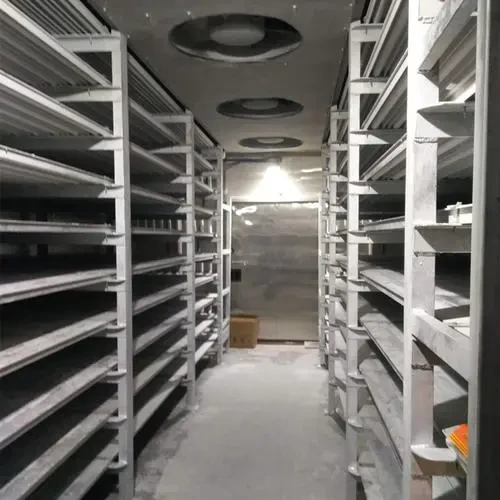custom supermarket cold storage room
Creating a Custom Supermarket Cold Storage Room Essential Considerations
In the modern retail landscape, supermarkets play a vital role in providing consumers with fresh produce, dairy products, meats, and other perishable goods. To maintain the quality and safety of these items, effective storage solutions are essential, and this is where the importance of a custom cold storage room comes into play. A well-designed cold storage facility not only extends the shelf life of perishable items but also helps supermarkets manage inventory efficiently.
Understanding Cold Storage Needs
The requirements for cold storage in a supermarket can vary significantly based on the size of the store, the types of products being sold, and the volume of inventory. Therefore, assessing these needs is the first step in creating a custom cold storage room. Factors such as the variety of perishable goods, seasonal demands, and delivery schedules should be taken into account.
For instance, a supermarket that specializes in organic produce may require different temperature controls compared to one that focuses on dairy products. Understanding the specific storage needs can prevent spoilage and waste, leading to better profitability.
Design and Layout
Once the needs assessment is complete, the next step is designing the cold storage room. The layout must facilitate easy access to all products while ensuring optimal airflow and consistent temperature. This typically involves identifying the right size for refrigerated units, walk-in coolers, or freezers. A well-organized layout promotes efficient workflow for staff, allowing them to easily retrieve items for stocking or customer orders without disrupting the storage environment.
Moreover, zoning is crucial. Perishable items must be segregated to prevent cross-contamination. For example, raw meats should be stored separately from fruits and vegetables. Implementing designated areas for each type of product helps maintain hygiene standards and ensures compliance with food safety regulations.
Temperature Control
Temperature control is the heart of cold storage management. Supermarkets must ensure that their cold storage facilities maintain the appropriate temperature ranges for different types of products. For instance, fresh fruits and vegetables typically require temperatures between 32°F to 35°F (0°C to 1.5°C), while dairy products should be stored at slightly colder temperatures, typically around 34°F to 38°F (1°C to 3°C).
custom supermarket cold storage room

Advanced refrigeration systems equipped with digital monitoring tools can help grocery managers keep track of temperatures and alert them to any deviations
. This not only protects perishable goods but also enables timely responses in case of equipment failures.Energy Efficiency and Sustainability
With rising energy costs and increasing awareness of environmental issues, energy efficiency should be a key consideration when developing a custom cold storage room. Modern refrigeration systems employ technologies such as LED lighting, energy-efficient compressors, and proper insulation to minimize energy consumption.
Incorporating sustainable practices, such as using eco-friendly refrigerants and recycling programs, can also enhance the supermarket’s brand image and appeal to environmentally conscious consumers. Many supermarkets are now adopting green initiatives, and a well-designed cold storage room can contribute significantly to these efforts.
Compliance with Regulations
Compliance with local health and safety regulations is critical in the food retail industry. Supermarkets must ensure that their cold storage rooms meet the necessary standards set by health authorities. This includes maintaining specific temperature ranges, proper ventilation, and substrate for cleaning to prevent contamination.
Regular inspections and maintenance checks should be part of the operation to ensure ongoing compliance, reduce risks, and protect public health.
Conclusion
In summary, a custom supermarket cold storage room is essential for the efficient management of perishable goods. By understanding unique storage needs, designing an effective layout, ensuring temperature control, focusing on energy efficiency, and complying with regulations, supermarkets can enhance their operational efficiency while providing consumers with high-quality products. Ultimately, investing in a well-planned cold storage solution can lead to increased customer satisfaction, reduced waste, and improved profitability for supermarkets.
















































































































